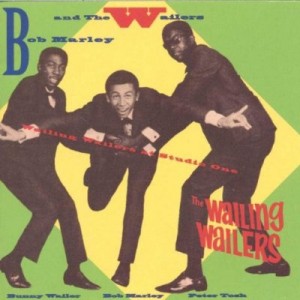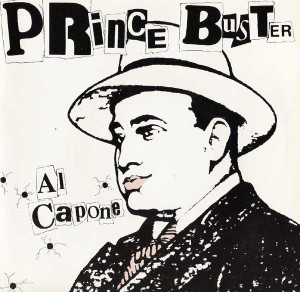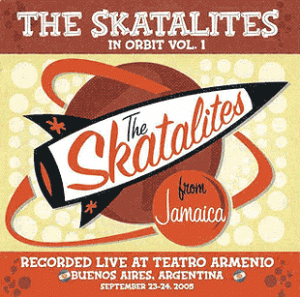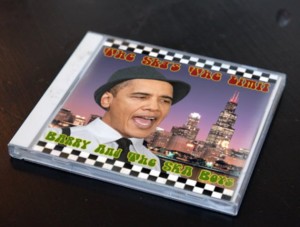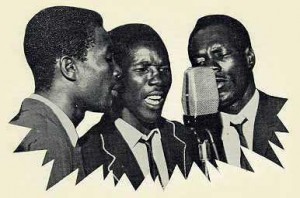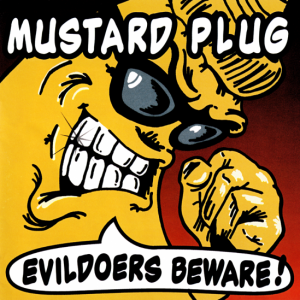The Skatalites
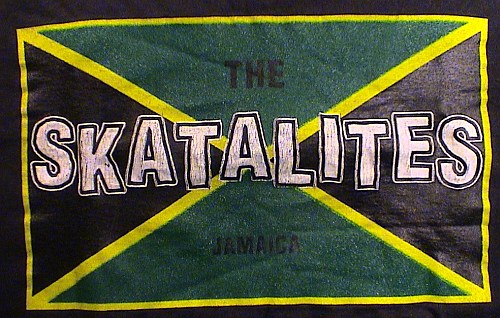
Reggae/ska band

Although many people today would associate ska with bands like The Specials, The English Beat, and Crawdaddy, it was actually The Skatalites, formed in 1963, that pioneered this musical sound. Lasting only 14 months after their original inception, this ground-breaking band has made some major comebacks. In 1984 they performed at The Reggae Sunsplash Festival in London and released the album Return of the Big Guns that same year. More recently, The Skatalites have composed two more albums accompanied with live performances. The 1990s marked the group’s fourth decade together, during which they have gained wide-spread popularity since their reunion. In an effort to meet the demand for their colorful, electrifying shows, The Skatalites continue to tour year round.
“When I came back to Jamaica in 1962, there was this tune there, ‘Schooling the Duke.’ lt was tearing down the airwaves,” recalled original Skatalites leader Tommy McCook in a 1984 interview with David Rodigan of Capital Radio London. He was impressed by the jazzy sounds of Johnny “Dizzy” Moore and Don Drummond, who both played on the tune. A jazz musician himself, McCook was peforming one night when he was approached by Moore and Drummond and asked to record with them. McCook initially refused but eventually joined the band that would later become The Skatalites.
During the 1960s, members of the band were heavily involved with recording sessions in Jamaica. They are also credited with inspiring the Britsh two-tone movement of the late seventies and early eighties. While recording primarily for producer Clement “Sir Coxsone” Dodd of Studio One, they performed with other acts such as the Charms, the Maytals, the Wailers, and the Heptanes.
The Last Gig
Although band members continued to perform with other artists, The Skatalites officially broke up in the summer of 1965. “Our last gig was at the Runaway Bay Hotel, Police Dance,” one Skatalite remembered in the 1984 interview. However, a new band, Soul Vendors, was subsequently formed and included the likes of Johnny Moore, Jackie Mittoo, Lloyd Brevette, and Bunny Williams.
Tragedy struck the band on May 6, 1969, when one of the founding Skatalites members, Don Drummond, died mysteriously while in a mental hospital. He had been plagued with mental problems for years, which perhaps influenced his music. “He was great, the sounds he produced,” commented McCook in his interview with Rodigan. “And the way he played his horn…would make you wonder you know…it was all so moonfull, sometimes you could cry inside.” McCook also suggested that Drummond’s death involved foul play—possibly as the result of a 1965 incident in which Drummond, in an angry rage, stabbed his girlfriend Marguerita to death. She was the daughter of an alleged mafia family.
Drummond’s Music Lives On
Drummond had written some songs that were posthumously recorded, allowing his music to survive. McCook acquired the compositions after one bandmember collected them during Drummond’s arrest. For years he retained the music as a memory, but McCook eventually decided to record it. “I took the music…to the piano,” he told Rodigan, ” and started to put the changes to it and things like that and it came out nice.” Before his death, Drummond had won several jazz trombonist awards.
One of the first Jamaican acts to sign with Island records, The Skatalites reached the British Top 40 with “Guns of Navarone” in 1967. The same year the Skatalites ceased recording under that name, although most members remained involved in Jamaican music. Some pursued solo careers, while others moved to England and became session musicians. One member, Rico Rodriguez, played horns on The Specials self-titled debut album in 1979, which incidentally was produced by the legendary Elvis Costello.
“Synergy” Reunited the Band
But it was “synergy” that reunited the band, as McCook declared to Rodigan. Playing for a whole new generation, The Skatalites released Ska Voovee in 1993, which contained 11 new instrumental songs, including a tribute to Drummond called “The Don,” featuring his replacement in the band, jazz trombonist Steve Turre. Reunited band members include Tommy McCook, Ron Wilson, Lester Sterling, Lloyd Knibbs, and Lloyd Brevette. According to Geoffrey Himes of theWashington Post, “The two Lloyds once again serve up the push-and-pull rhythms—with their emphasis on the off-beat—that first defined ska as something different from North American R&B and set the stage for reggae.” This “off-beat” sound has influenced the music of many modern artists, who have sampled Skatalites rhythms to blend with their own.
Although The Skatalites defined the ska sound in the 1960s, most of the original members began their careers as jazz musicians, and with the 1994 release of Hi-Bop Ska, the band seems to have come full circle. The founding members “at the core of this reformed ensemble reaffirm their jazz roots in vibrant style here,” opined Down Beat‘s Larry Birnbaum. “New compositions blend easily with classics like ‘Guns of Navarone’ and ‘Man in the Street.'” In 1995 McCook suffered a heart attack and was forced to take a hiatus from his busy touring schedule. But this didn’t prevent him from returning to the studio to record 1996’s Greetings from Skamania. A biography released by Shanachie Entertainment asserted that the result of this effort is “a lava-hot album that exemplifies the best the Skatalites have to offer. Pounding ska beats and blistering jazz solos blend seamlessly together to create an album that feels simultaneously cutting-edge fresh and tempered-steel classic. Greetings from Skamania!”
For the Record .. .
Members include Roland Alphonso, tenor sax; Gladstone Anderson, keyboards; Theophilus Beckford, keyboards; Lloyd Brevette, bass; Baba Brooks, trumpet; Karl Bryan, alto sax;Drumbago, drums; Don Drummond (d. May 6, 1969), trombone; Bobby Ellis, trumpet;Raymond Harper, trumpet; Jah Jerry (b. Jerome Hines), guitar; Hugh Malcolm, drums; Tommy McCook, trumpet, tenor sax; Jackie Mittoo (d. 1988), keyboards; Johnny “Dizzy” Moore,fluegelhorn, trumpet; Lloyd Nibbs, bass, percussions; Ernest Ranglin, guitar; Rico Rodriguez,trombone; Lester Sterling, alto sax.
Group formed in 1963 in Jamaica; released Ska Authentic in 1963; disbanded 1965; reunited 1983, 1993; signed with Shanachie c. 1983; credited with inspiring the British two-tone movement of the late 1970s and early 1980s.
Addresses: Business agent—Abby Hoffer Enterprises, 223½ E. 48th St., New York, NY 10017. Fan club— PO Box 391079, Cambridge, MA 02139-1079.
Selected discography
Ska Authentic, Studio One, 1963.
Legendary Skatalites, Top Ranking, 1975.
African Roots, United Artists, 1977.
Scattered Lights, Aligator, 1984.
Ska Voovee, Shanachie, 1993.
Hi-Bop Ska, Shanachie, 1994.
Greetings from Skamania, Shanachie, 1996.
Sources
Books
Rolling Stone Encyclopedia of Rock and Roll, edited by Jon Pareles, Rolling Stone Press/Summit Books, 1983.
Periodicals
Down Beat, June 1995.
Washington Post, March 4, 1994.
Online
The Boston Ska Home Page: http//www.dataweb.nl/~vanbreda/Skatalites.HTML.
Additional information was obtained from Shanachie Entertainment press materials, 1996.
—Maria L. Munoz
Source: Contemporary Musicians, ©2006 Gale Cengage. All Rights Reserved. Full copyright.
